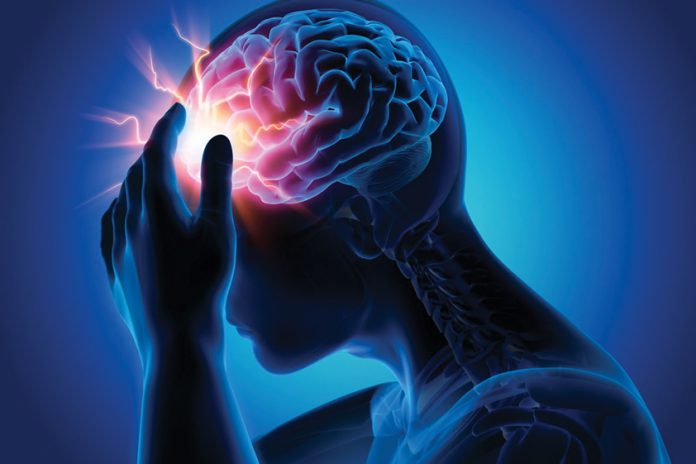Strokes are brain attacks. They occur when the blood supply to the brain becomes blocked. A stroke is a medical emergency that needs immediate medical attention. Nearly 800,000 people have a stroke each year. That equates to about one person every 40 seconds.
- During a stroke, the brain does not receive enough oxygen or nutrients, causing brain cells to die.
- Strokes need to be diagnosed and treated as quickly as possible to minimize brain damage.
- Treatment depends on the type of stroke.
- The most effective way to prevent strokes is through maintaining a healthy lifestyle and treating underlying conditions that could be a risk factor.
What is a stroke?
- A stroke occurs when the supply of blood to the brain is either interrupted or reduced. When this happens, the brain does not get enough oxygen or nutrients, and brain cells start to die.
Types
There are three main types of stroke:
- Ischemic stroke: This is the most common type of stroke. A blood clot prevents blood and oxygen from reaching the brain.
- Hemorrhagic stroke: This occurs when a weakened blood vessel ruptures and normally occurs as a result of aneurysms or arteriovenous malformations (AVMs).
- Transient ischemic attacks (TIAs): Also referred to as a mini stroke these occur after blood flow fails to reach part of the brain. Normal blood flow resumes after a short amount of time, and symptoms cease.
Causes
The different types of stroke have different causes. However, stroke is more likely to affect people if they have the following risk factors:
- being overweight
- being aged 55 years or older
- a personal or family history of stroke
- an inactive lifestyle
- a tendency to drink heavily, smoke, or use illicit drugs
Symptoms
Symptoms of a stroke often appear without warning.
The main symptoms of stroke are:
- confusion, including trouble with speaking and understanding altered consciousness or vomiting
- numbness or inability to move parts of the face, arm, or leg, particularly on one side of the body
- vision problems in one or both eyes
- trouble walking, including dizziness and lack of co-ordination
Strokes can lead to long-term health problems. Depending on how quickly it is diagnosed and treated, an individual can experience temporary or permanent disabilities in the aftermath of a stroke.
Diagnosis
Strokes onset rapidly and will often occur before an individual can be seen by a doctor for a proper diagnosis.
For a person experiencing a stroke to get the best diagnosis and treatment possible, they should be treated at a hospital within 3 hours of their symptoms first appearing.
There are several different types of diagnostic tests that doctors can use to determine which type of stroke has occurred:
- Physical examination: A doctor will ask about symptoms and medical history. They may check blood pressure, listen to the carotid arteries in the neck, and examine the blood vessels at the back of the eyes to check for indications of clotting.
- Blood tests: A doctor may perform blood tests to find out how quickly the clots occur, the levels of particular substances in the blood, including clotting factors and whether or not an infection is present.
- CT scan: A series of X-rays can show hemorrhages, strokes, tumors, and other conditions within the brain.
- MRI scan: Radio waves and magnets create an image of the brain to detect damaged brain tissue.
- Carotid ultrasound: An ultrasound scan to check the blood flow in the carotid arteries and to see if there is any plaque present.
- Cerebral angiogram: Dyes are injected into the brain’s blood vessels to make them visible under X-ray. This gives a detailed view of the brain and the blood vessels in the neck.
- Echocardiogram: This creates a detailed image of the heart to check for any sources of clots that could have traveled to the brain to cause a stroke.
It is only possible to confirm the type of stroke someone has had by giving them a brain scan in a hospital environment.
In case of emergency or if you would like to speak to a Neurologist regarding stroke then please contact Phyathai Sriracha Neurology Center on 24 hour line 087 – 100 – 0990 www.phyathai-sriracha.com










